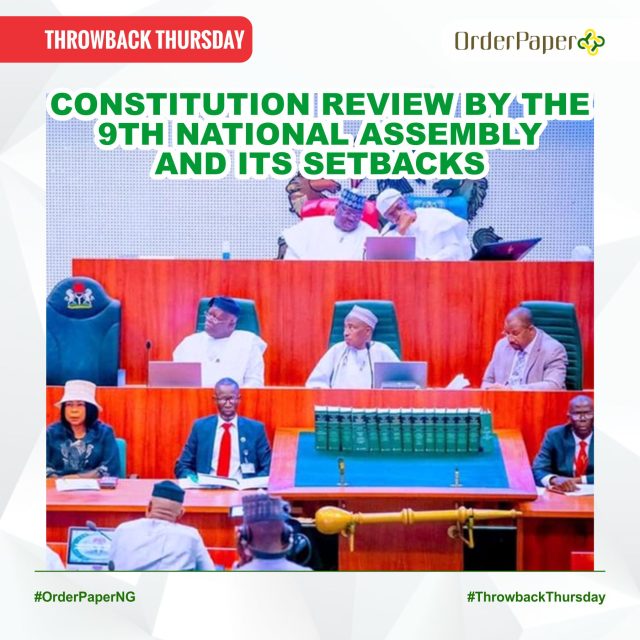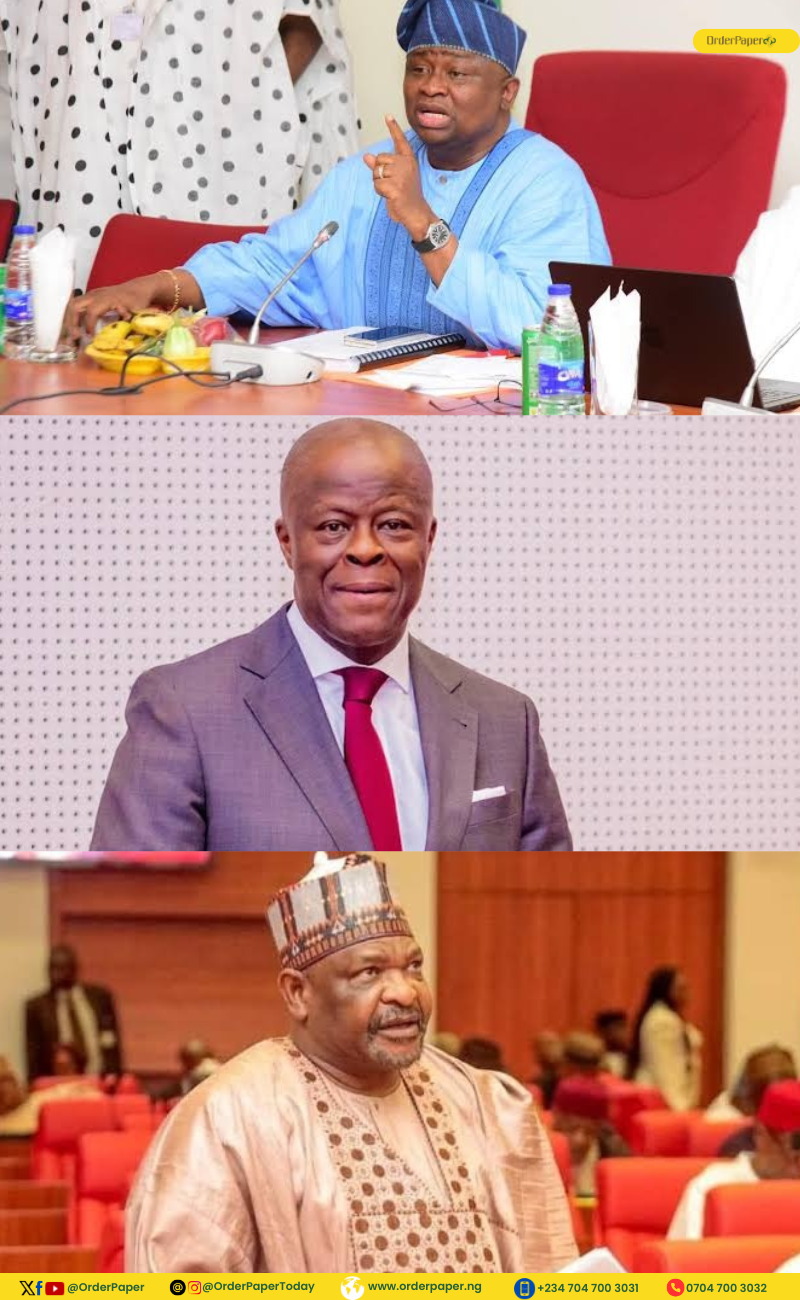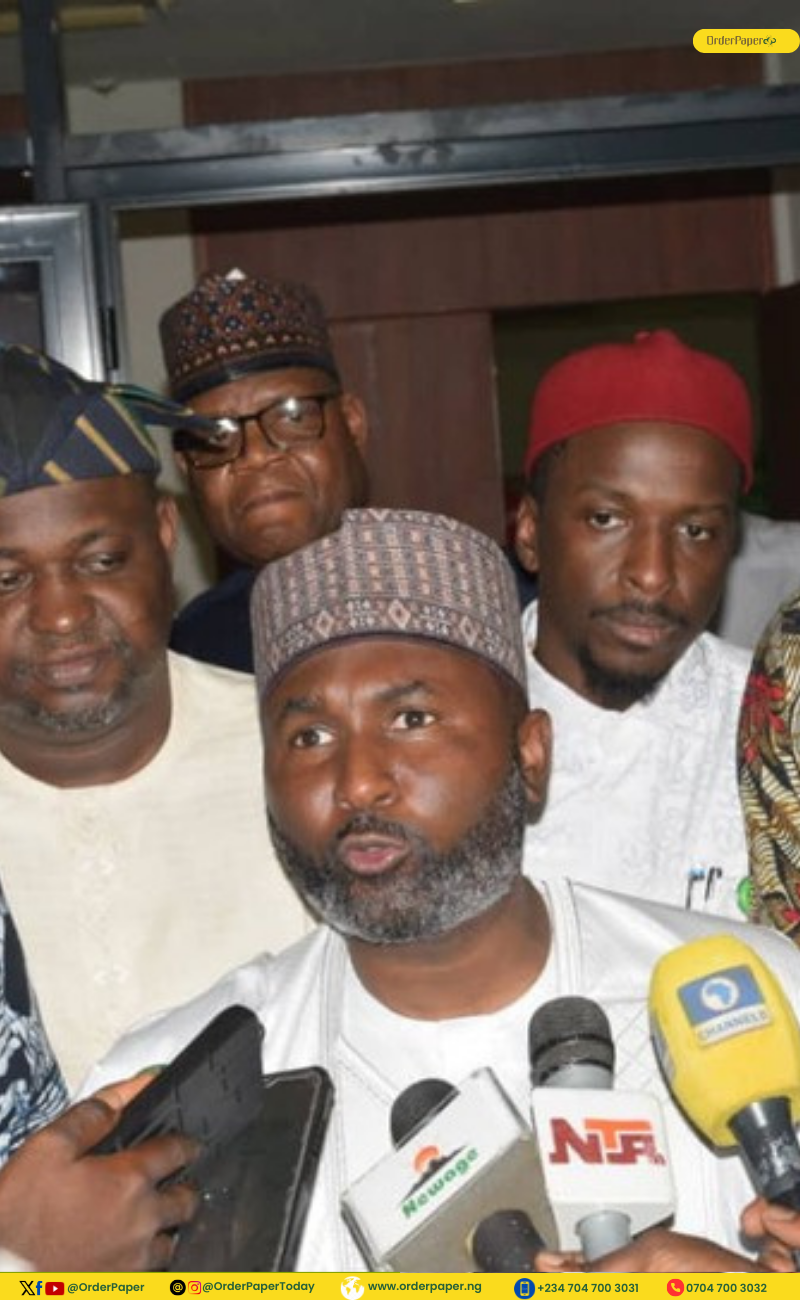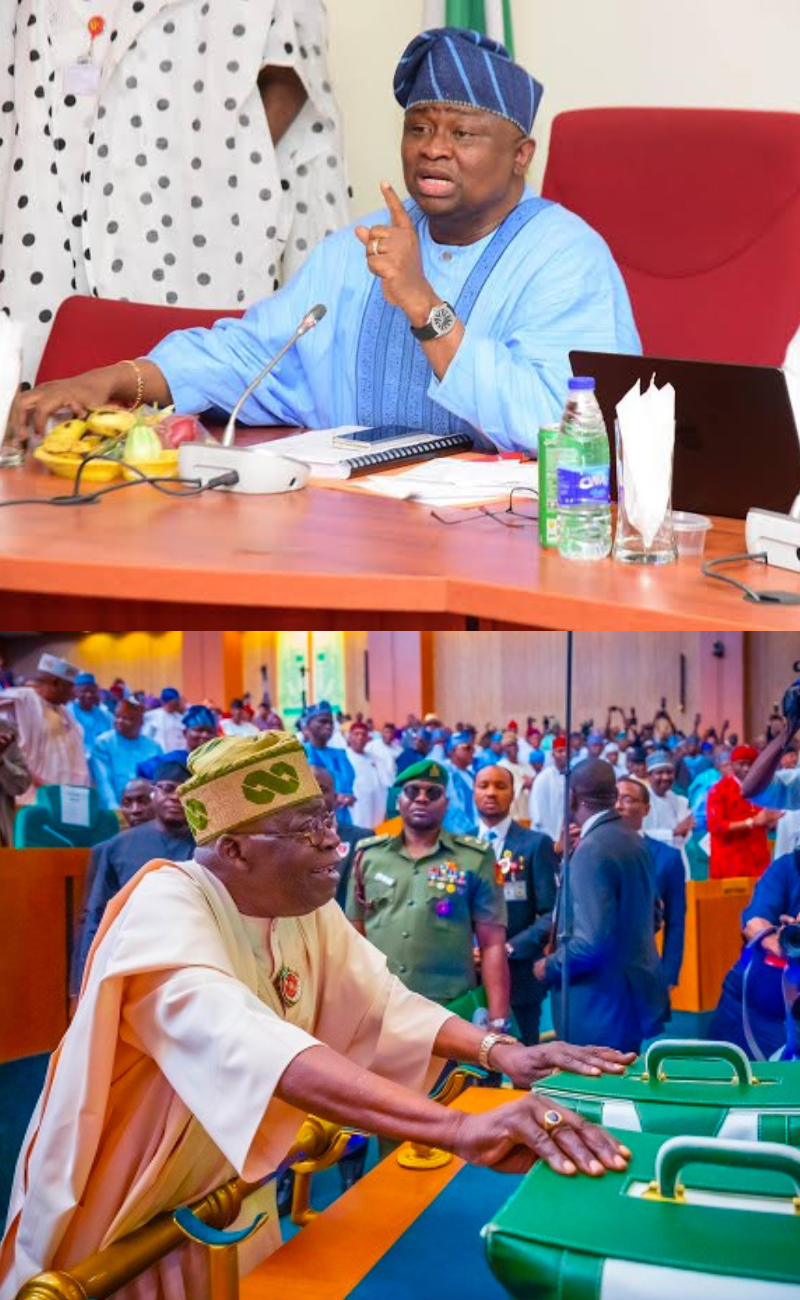The amendment of the 1999 Constitution appears to be at a stalemate currently, following ‘disagreements’ between the leadership of the State and National Assemblies, respectively.
On Throwback Thursday this week, we take a trip down memory lane, cataloguing milestones in the process thus far, while asking critical questions on the way forward.

BACKGROUND
Since 1999, the issue of Constitution review has always featured prominently in each Legislative Assembly of Nigeria’s Federal Parliament.
Since the advent of the Fourth Republic, there have been at least four attempts by the National Assembly to alter the 1999 Constitution of the Federal Republic of Nigeria. As with previous Assemblies, the Ninth National Assembly, in 2020, embarked on a similar mission to amend the grundnorm in tandem with the yearnings of Nigerians.
Both Chambers of the National Assembly went on to conduct public hearings on the process across the country’s six geopolitical zones, where they received memoranda from different interest groups.
READ ALSO: Constitution Amendment Bill: NASS sets date for transmission to State Assemblies
By February 23, 2022, the Special Ad-hoc Committees on Constitution Review in the Senate and the House of Representatives had laid their reports on the alteration of the 1999 Constitution. In the report/recommendations on the review, sixty-eight Constitution Alteration bills were listed for debate and clause-by-clause voting by members of both chambers.
On March 1, 2022, the National Assembly conducted clause-by-clause voting on 68 amendments recommended by its Joint Special Ad Hoc Committee on Constitution Review. Bills considered during voting include those on independent candidacy, life pension for National Assembly Presiding Officers, and Special seats for women in the National Assembly and State Assemblies, among others.
On March 29, 2022, the National Assembly transmitted the 44 bills that scaled through the voting process to the State Assemblies in line with Section 9(2) of the 1999 Constitution. The section stipulates that Constitution Alteration Bills, having been approved by two-thirds or a four-fifth majority of each of the Senate and the House, have to be approved by two-thirds (or 24 of 36) of the country’s State Houses of Assembly.
READ ALSO: Constitution Review: Lawan urges El-Rufai to lobby governor-colleagues
In October 2022, the Deputy President of the Senate disclosed that only 11 states had so far considered and performed their constitutional role of passing amendments to the constitution.
He lamented that Speakers of State Assemblies, through a letter to the National Assembly Joint Committee on Constitution Review, had given four conditions upon which the remaining 25 states would pass the amendments. However, in a rejoinder, the Conference of Speakers of State Legislatures of Nigeria berated the National Assembly leadership over what they termed attempts to ‘blackmail them’ over the issue.
In their claim, 16 states have passed resolutions on the Constitution Review, stressing that bills establishing state police, streamlining the procedure for removing Presiding Officers of State Assemblies, and two others be included for voting.
READ ALSO: “Constitution amendment may not be concluded in 9th NASS” – Gbajabiamila
THE POSERS
On 12th December 2022, Speaker of the House of Representatives, Femi Gbajabiamila, revealed that the Constitution Amendment process might not be concluded in the current National Assembly.
With this revelation, what happens to the over one billion naira approved for the entire exercise?
Is the Speaker’s assertion that the “process seems to have stalled in the States Assemblies” an admittance that the two levels of legislative houses involved cannot put their egos aside in favour of national interest?
Importantly, have they all resolved to dash the hopes and aspirations of Nigerians with regard to getting a manageable constitution ahead of a crucial transition in 2023?
Throwback Thursday is OrderPaper’s special programme focused on historical trends in the polity. It spotlights the genesis of the same and previous interventions by the National Assembly in that regard; while exploring the present as well as the way forward



